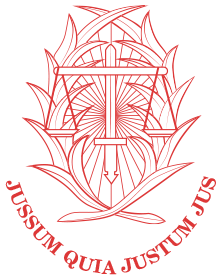
Of Warriors and Angels (1)
Alfredo Attié(2)
“Je hais les voyages et les explorateurs. Et voici que je m’apprête à raconter mes expéditions. Mais que de temps pour m’y résoudre !” Lévi-Strauss
I hate the fighting and the fighters. And here I am, about to tell my restless experience observing the evolving movements of combatants and the charged struggle they manifested. Only after dreams, nightmares did I decide to describe my own feelings – scared at first, the enthralling features of the spectacle persuaded me that there could be some fascinating mysticism behind the scenes, like skillful handling of a puppeteer.
It was a Sunday evening. I had decided, not without reluctance, to accept the invitation of a friend – who would, later on, reveal himself an expert in the field of Martial Arts – to go to the Rajadamnerm Stadium, not far away from downtown, a place that advertises itself as “The Ultimate Muay Thai Arena.” The taxi driver kindly divided his attention between the busy traffic of the City of Angels, and a small package of tamarind salted seeds, which he ate as voraciously as he fought to understand how we, foreigners, could have bought tickets to the Muay Thai entertainment through the internet without extra charge.
Of course, there is no shortcut to understanding any culture in the world, because there is no culture that can at once naively unveil its inherent characteristics, even to the most attentive and experienced observers. Nonetheless, the case of Thai culture seems to be particularly unique. The uniformity of manners fused with the simplicity in clothing hides an enigmatic complexity, which, when unveiled becomes as astonishing as the revelation that the name Bangkok does not convey this city’s true identity. In Pali and Sanskrit, the capital espouses a much prouder name, กรุงเทพมหานคร อมรรัตนโกสินทร์ มหินทรายุธยา มหาดิลกภพ นพรัตน์ราชธานีบุรีรมย์ อุดมราชนิเวศน์มหาสถาน อมรพิมานอวตารสถิต สักกะทัตติยะวิษณุกรรมประสิทธิ์, which can mean, “the city of angels (or gods), home of the Emerald Buddha, great and magnificent city of the nine gems, seat of the king, happy and generous city of the Royal Palace, similar to the home of gods incarnate, erected by Vishvakarmanat, Indra’s behest.” Bangkok, beyond its complex combination of territory, people and rules, exudes holiness and spirituality, worthy of religious veneration.
Muay Thai, and its many expressive features, much like the discovery of the rich symbology behind this city’s name, surprised me. It is not just a fight or simply a competition. The meaning of the sport can be understood only if one puts sensations into action. And even so, it will require an additional effort of the mind to understand why the warriors perform such a beautiful and touching ritual before the assured destruction. Khru Ram Muay (ไหว้ครูรำมวย), as it’s called, begins with bowing and leads into a gracious dance, which, in its expressiveness, almost makes one forget the fight to come. In a second, reality strikes the tender ritual, and as arms and legs flail in the air, blows are exchanged. The warriors, however, maintain a stoic façade – without any sign of pain or complaint, not even a sound can give evidence of a suffering body, or reveal indecision of the mind. But in their undemonstrative guile, they forget not to pay their respects, to the gods and angels, to whom they pray; to the public, for whom they perform; and to their opponent, to whom they devote violence and art.
The fight and the rituals are accompanied by the Sarama (สะระหม่า), modal music performed by four musicians, each playing an oboe, a pair of Thai drums and a cymbal. The rhythm follows the mood of the growing excitement of the combat, slow at the beginning, and frenetic at its most fierce. Sometimes apollonian; other times, dionysian, the music not only compounds the atmosphere of battle but also generates a kind of trance in the audience, who, out of body, feel themselves being carried to a sacred place, where the fight is solely against fate, for the sake of the eternal flow of life.
The ambivalence of the violent acts I was witnessing drove me to understand every detail of the path I had followed the day before when I visited the Wat Pho, Wat Arun, and the Royal Palace. The student and accidental tourist became aware of his surroundings, open to the assimilation of complex meanings; now inclined to participate in the building of far more complex rituals, roles, and rules for the building of peace. (3)
(1) Written originally for the Chulalongkorn University
(2) Alfredo Attié is Justice at the Sao Paulo Supreme Court, Full Fellow of the San Tiago Dantas Chair at the Sao Paulo Law Academy.
(3) Dedicated to Francisco Luís and Thomas Attié
